20 Essential Oils for Hair Growth: Benefits, Science, and Application
Hair loss is a common concern for many, but nature offers effective remedies. Essential oils are increasingly popular for improving hair health due to their proven benefits, scientific support, and ease of use. Studies and anecdotal evidence suggest that certain essential oils may help by improving scalp health, stimulating hair follicles, or reducing factors that contribute to hair loss, such as inflammation or poor circulation. Here’s a comprehensive guide to 20 essential oils that promote hair growth, detailing their mechanisms, application tips, and scientific evidence.
The List of Top 20 Essential Oils
1. Rosemary Oil
- How It Helps: Improves blood circulation to hair follicles and stimulates growth.
- Scientific Support: A 2015 study showed results comparable to minoxidil, with fewer side effects.
- Special Notes: Mix with a carrier oil (like jojoba) and massage into the scalp for 5-10 minutes.
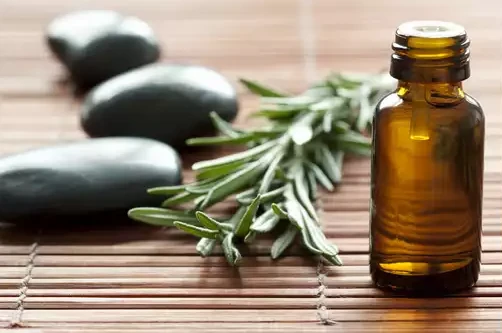
2. Peppermint Oil
- How It Helps: Enhances follicle activity through its cooling effect and boosts blood flow.
- Scientific Support: A 2014 study demonstrated significant hair regrowth in animal models.
- Special Notes: Avoid overuse; its strong cooling sensation can irritate sensitive skin.
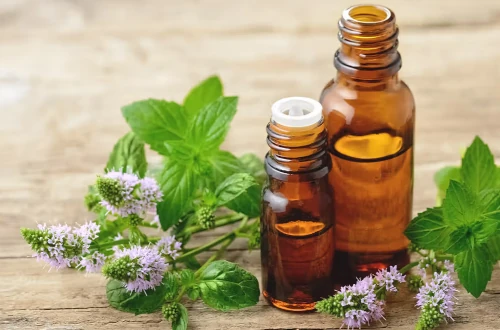
3. Lavender Oil
- How It Helps: Promotes hair follicle health and reduces stress-induced hair loss.
- Scientific Support: A 2016 animal study confirmed enhanced follicle growth with consistent use.
- Special Notes: Its calming scent makes it ideal for overnight treatments.
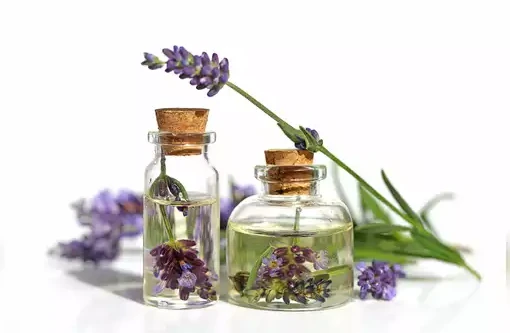
4. Tea Tree Oil
- How It Helps: Treats dandruff, unclogs hair follicles, and fights microbial infections.
- Scientific Support: Known for its antimicrobial and anti-inflammatory properties.
- Special Notes: Use sparingly, diluted in shampoo or a carrier oil.
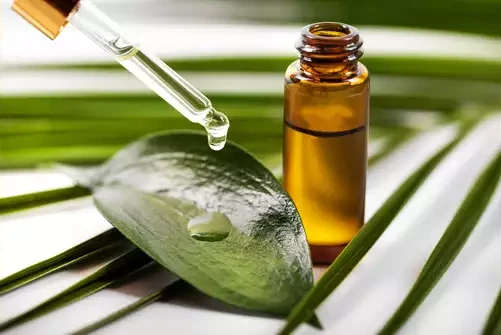
5. Cedarwood Oil
- How It Helps: Balances scalp oil production and strengthens follicles.
- Scientific Support: A 1998 study showed it helped with alopecia areata when blended with other oils.
- Special Notes: Best combined with rosemary and lavender oils for hair loss treatment.
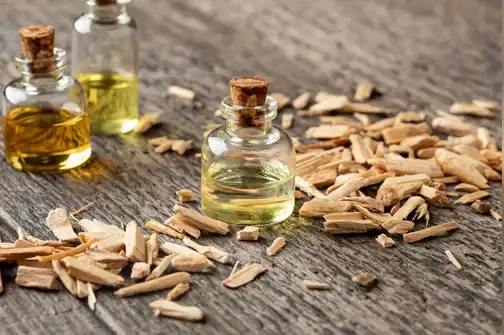
6. Argan Oil
- How It Helps: Rich in antioxidants and fatty acids, it strengthens and nourishes hair.
- Scientific Support: Widely recognized in commercial hair care products for moisturizing benefits.
- Special Notes: Ideal for dry, brittle hair; apply to ends and leave on as a mask.
7. Clary Sage Oil
- How It Helps: Reduces scalp inflammation and strengthens hair to prevent breakage.
- Scientific Support: Contains linalyl acetate, known for promoting hair health.
- Special Notes: Works well in blends with cedarwood or rosemary oils.
8. Black Seed Oil
- How It Helps: Anti-inflammatory and antioxidant properties protect follicles.
- Scientific Support: Studies suggest it reduces hair loss and improves density.
- Special Notes: Effective in reducing inflammation-related hair issues.
9. Bergamot Oil
- How It Helps: Soothes the scalp and promotes a healthier hair environment.
- Scientific Support: Known for its antimicrobial and anti-inflammatory properties.
- Special Notes: Excellent for adding shine to hair when diluted in a serum.
10. Thyme Oil
- How It Helps: Stimulates blood flow to the scalp and promotes healthy hair growth.
- Scientific Support: Included in alopecia areata treatment studies for stimulating effects.
- Special Notes: Use sparingly; its potency can cause irritation if undiluted.
11. Eucalyptus Oil
- How It Helps: Improves scalp circulation and unclogs pores.
- Scientific Support: Antimicrobial benefits promote scalp health.
- Special Notes: Combine with a hydrating carrier oil to prevent dryness.
12. Neem Oil
- How It Helps: Fights scalp infections and dandruff while strengthening roots.
- Scientific Support: Contains azadirachtin, which combats fungal infections.
- Special Notes: Its strong scent might require blending with a milder oil.
13. Geranium Oil
- How It Helps: Balances scalp sebum and nourishes hair for improved shine and strength.
- Scientific Support: Commonly used in commercial hair care for conditioning.
- Special Notes: Effective in serums and leave-in treatments.
14. Ylang-Ylang Oil
- How It Helps: Hydrates the scalp and reduces breakage in dry hair types.
- Scientific Support: Known for its moisturizing properties.
- Special Notes: Ideal for dry scalp treatments.
15. Lemongrass Oil
- How It Helps: Reduces dandruff and improves overall scalp health.
- Scientific Support: A 2015 study showed significant dandruff reduction with consistent use.
- Special Notes: Best used as part of a rinse or shampoo.
16. Frankincense Oil
- How It Helps: Protects the scalp and reduces inflammation, aiding hair regrowth.
- Scientific Support: Widely recognized for its regenerative properties.
- Special Notes: Combine with lavender for added calming effects.
17. Basil Oil
- How It Helps: Improves circulation and unclogs hair follicles.
- Scientific Support: Traditional medicine recognizes its scalp-rejuvenating properties.
- Special Notes: Use diluted to avoid skin sensitivity.
18. Turmeric Oil
- How It Helps: Reduces oxidative stress and combats inflammation.
- Scientific Support: Curcumin has documented anti-inflammatory benefits.
- Special Notes: Works well in blends for scalp health.
19. Patchouli Oil
- How It Helps: Soothes scalp irritation and enhances scalp health.
- Scientific Support: Antimicrobial effects promote a clean scalp environment.
- Special Notes: Has a musky scent that blends well with cedarwood.
20. Cypress Oil
- How It Helps: Boosts blood flow to the scalp, promoting healthy follicles.
- Scientific Support: Known for its vasoconstrictive properties supporting circulation.
- Special Notes: Use in scalp massages for best results.
How to Use Essential Oils for Hair Growth
- Dilution: Always dilute essential oils with a carrier oil (e.g., coconut, jojoba, or argan oil).
- Patch Test: Test for allergies by applying a small amount to your forearm before using on your scalp.
- Scalp Massage: Massage diluted oil into the scalp for 5–10 minutes to boost circulation.
- Leave-In: You can leave the oil on overnight (using a shower cap) or rinse it out after 30-60 minutes.Be sure it’s well-diluted.
- Shampoo Additive: Add a few drops to your shampoo for an extra boost.
- Consistency: Use 2–3 times a week for noticeable results over several months.
By incorporating these essential oils into your routine, you can naturally combat hair loss and promote healthier, thicker hair. Experiment with combinations to find the perfect blend for your needs! 🌿
Tips from the Experts — Dermatologists
These tips from top dermatologists help you get the most out of microneedling:
- Avoiding Shampoo for 24 Hours : This ensures that the scalp heals and allows any irritation from shampoo or other styling products to subside.
- Apply SPF on the Scalp: The scalp will be more exposed to direct sunlight after microneedling, so be sure you’re protecting this area!
- Do not overdo it: Using it more often will not yield better results and can irritate the skin. The frequency of use depends on the needle size and how sensitive you are to the treatments.
Final Notes
- This list expands on a wide variety of essential oils, though their effectiveness can vary based on individual needs and hair loss causes.
- Always test for allergies and dilute essential oils with a carrier oil.
- Combining these oils into synergistic blends can maximize benefits.


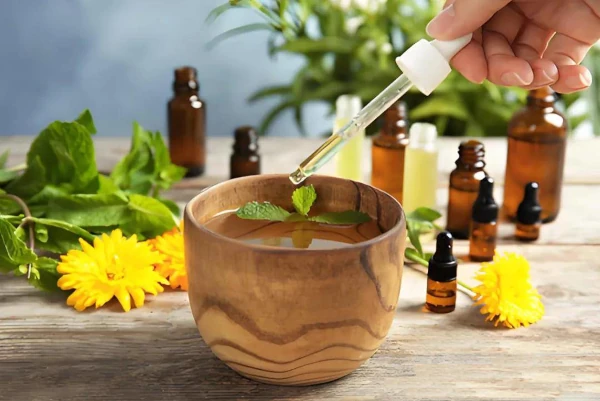
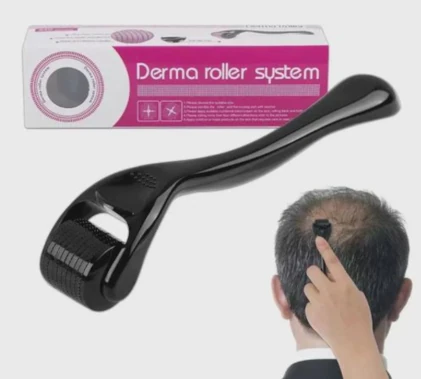
Hello! I could have sworn I’ve been to this site before but after browsing through some of the post I realized it’s new to me.
Nonetheless, I’m definitely delighted I found it and I’ll be book-marking and checking back
often!
This is my first time visit at here and i am actually happy to read all at alone
place.
I am actually thankful to the holder of this site who has shared this great piece of writing at at this place.
You actually make it seem so easy with your presentation but I find this topic
to be actually something that I think I would never understand.
It seems too complex and very broad for me. I am
looking forward for your next post, I will try to get the hang of
it!
Link exchange is nothing else but it is simply placing
the other person’s webpage link on your page at appropriate place
and other person will also do same for you.
I love it when people come together and share ideas.
Great site, continue the good work!
Touche. Outstanding arguments. Keep up the good work.
It’s remarkable to pay a visit this web page and reading the views
of all mates about this post, while I am also eager
of getting know-how.
I want to to thank you for this great read!!
I absolutely loved every bit of it. I have
you saved as a favorite to look at new things
you post…
I used to be able to find good advice from your blog articles.
Wow that was strange. I just wrote an extremely long
comment but after I clicked submit my comment didn’t show up.
Grrrr… well I’m not writing all that over again. Anyhow, just wanted to say
excellent blog!
I’m really enjoying the theme/design of your weblog. Do you ever run into
any internet browser compatibility issues? A small number of my blog audience have complained about my
blog not working correctly in Explorer but looks great in Opera.
Do you have any ideas to help fix this issue?
Very nice post. I just stumbled upon your weblog
and wished to say that I have really enjoyed browsing your blog
posts. In any case I’ll be subscribing to your rss feed and I hope you write again soon!
I’m gone to tell my little brother, that he should also visit this website on regular basis to
get updated from most recent reports.
Aw, this was an extremely nice post. Finding the time and actual effort to create a top notch article… but what can I say… I
hesitate a whole lot and don’t seem to get anything
done.
What you said made a bunch of sense. But, what about this?
what if you wrote a catchier title? I ain’t saying your information is not solid, but what if you added a title to maybe get a person’s attention? I mean 20 Essential Oils
for Hair Growth- Wasted Thinker ✔️ is kinda
vanilla. You could peek at Yahoo’s front page and watch how
they create post headlines to get people to click.
You might add a related video or a pic or two to get people excited about
everything’ve written. In my opinion, it could make your posts
a little bit more interesting.
Thanks for the good advice. The author here mainly focuses on giving the facts that are backed by data, basically not on marketing, so he/she didn’t use hte sentence like “After using xxxx, my hair started growing like crazy!”…:)
I couldn’t refrain from commenting. Exceptionally well written!